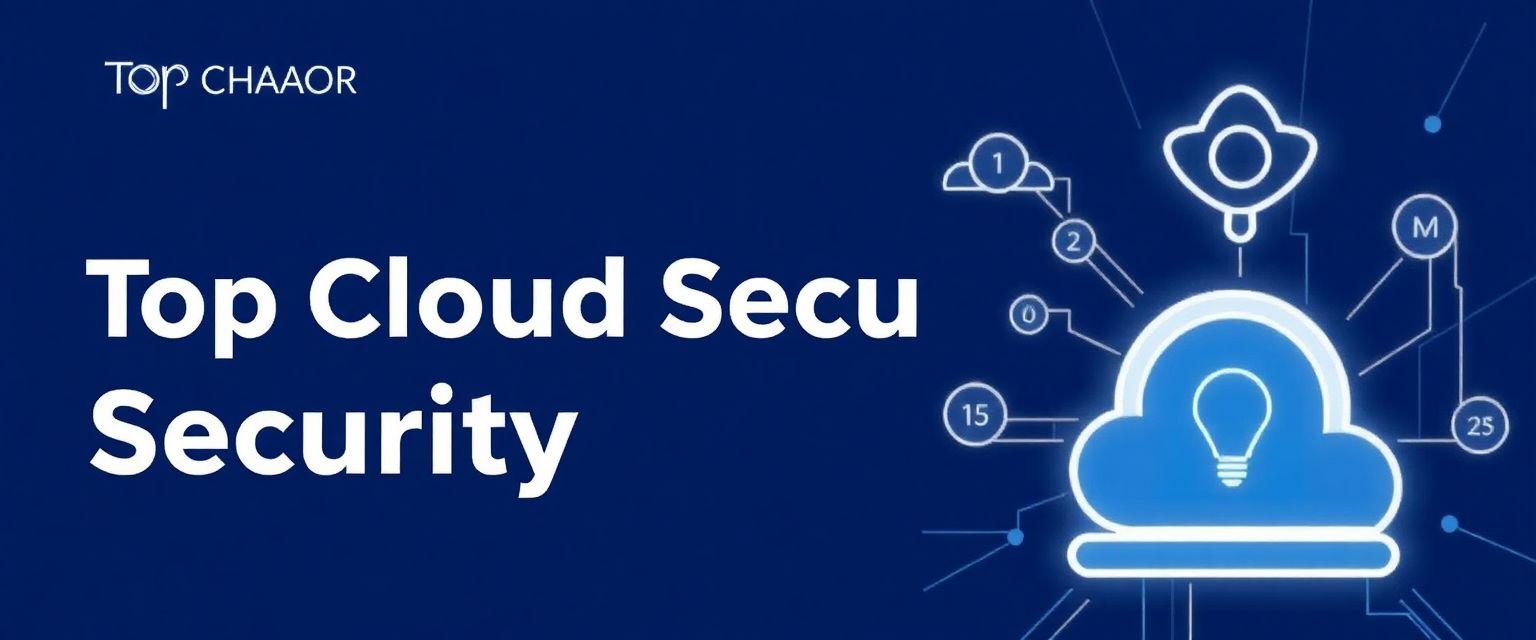In today’s digital age, cloud network security isn’t just a technical necessityit’s the frontline defense in a war against cyber threats. As businesses migrate to cloud environments, the need for robust security measures becomes more paramount. It is not merely about protecting data; it’s about safeguarding the entire digital infrastructure against espionage, sabotage, and outright theft. The stakes are high; a breach could mean loss of sensitive data, financial losses, and irreparable damage to a company’s reputation. Companies must navigate a labyrinth of security protocols, each more complex than the last, to ensure their cloud networks remain impenetrable.

Understanding Cloud Network Security
Discover essential insights into cloud network security and its significance for protecting your data.
– What is cloud network security? It refers to the policies, technologies, and controls designed to protect cloud-based networks from threats and vulnerabilities.
– Why is it important? Maintaining cloud network security is crucial to safeguard sensitive information, ensure compliance, and protect against cyberattacks.
– How to secure cloud networks? Implement secure architectures, enforce security controls, and continuously monitor and audit your cloud network for vulnerabilities.
What is Cloud Network Security?
Cloud network security refers to a set of policies, technologies, and controls deployed to protect the data, applications, and infrastructure associated with cloud computing. It ensures that all data and applications that reside in the cloud are secured against unauthorized access, data breaches, and other vulnerabilities. This security model is designed to address both internal and external threats to business security.
In my years working in IT, Ive witnessed firsthand the evolution of cloud security. Back in the early 2010s, the mere idea of storing sensitive data offsite was met with skepticism and fear. Today, however, cloud solutions are heralded for their flexibility, cost-effectiveness, and scalability. But with these benefits come new security challenges that demand sophisticated solutions.
Why is Cloud Network Security Important?
The importance of cloud network security cannot be overstated. As companies scale their operations, the cloud becomes an attractive option for storing and processing data. However, this transition also increases the potential for security breaches. According to a report by Cybersecurity Ventures, cybercrime is expected to cost the world $10.5 trillion annually by 2025, up from $3 trillion in 2015. This staggering increase underscores why cloud network security is vital.
From personal experience, I recall an incident where a small oversight in cloud security configurations led to a significant data breach at a mid-sized company. The aftermath was devastating, not just financially but also in terms of customer trust. Such incidents highlight that without proper security measures, companies are vulnerable at every layer of their cloud infrastructure.
How to Secure Cloud Networks
Securing cloud networks involves a multi-faceted approach, integrating advanced technologies with strategic planning. Here are key strategies:
1. Use a Secure Cloud Network Architecture
Establishing a secure architecture is the foundation of any cloud network security strategy. This involves designing a network that inherently integrates security measures from the ground up, rather than as an afterthought. Secure architectures typically include network segmentation, which isolates sensitive data, and implementing a zero-trust model that ensures no one is trusted by default, even those inside the network.
2. Implement Cloud Network Security Controls
Security controls are the mechanisms that enforce security policies to protect cloud infrastructure. They include firewalls, intrusion detection systems, and encryption protocols. These controls are essential for creating a robust barrier against unauthorized access and data leaks. Insider Tip: Regularly update your security controls to combat the latest threats. Cybercriminals are continuously evolving, and so should your defenses.
3. Monitor and Audit Cloud Network Security
Constant vigilance is required to maintain robust cloud network security. Monitoring and auditing are critical in identifying potential threats and vulnerabilities before they can be exploited. Tools that provide real-time monitoring and logging are invaluable. They offer insights into who accessed what data and when, which is crucial for both security and compliance purposes.

What are the Benefits of Cloud Network Security?
Incorporating cloud network security measures offers manifold benefits that extend beyond mere protection. First and foremost, it ensures business continuity. By preventing data breaches and ensuring data integrity, businesses can operate without disruptions. Additionally, it enhances customer trust. Clients and customers expect their data to be protected, and robust security measures reassure them of your commitment to safeguarding their information.
Moreover, adhering to cloud network security best practices can provide a competitive advantage. As regulations around data protection become more stringent, businesses that proactively secure their cloud networks can avoid hefty fines and potential legal issues. This proactive approach not only protects but also enhances business reputation, positioning companies as leaders in data protection.
What are the Challenges of Cloud Network Security?
Despite its benefits, cloud network security presents several challenges. One major hurdle is the complexity of managing security across hybrid and multi-cloud environments. Each platform has its own security protocols, making it difficult to maintain a consistent security posture. This complexity often leads to misconfigurations, which are a leading cause of data breaches.
Another significant challenge is the evolving nature of cyber threats. Cyber attackers are becoming increasingly sophisticated, employing tactics such as ransomware and advanced persistent threats (APTs). Keeping up with these evolving threats requires continuous investment in new technologies and training for security personnel.
A Personal Experience with Cloud Network Security
Several months ago, I was part of a small tech startup, InnovateTech, that relied heavily on cloud services for our operations. As our customer base grew, so did our data, and with that came the mounting pressure to ensure our cloud network security was robust. It wasnt long before we experienced a minor security breach that served as a wake-up call.
One evening, our IT manager, Sarah, noticed unusual activity in our cloud environment. After a thorough investigation, we discovered that a phishing email had tricked one of our employees into providing their login credentials. Thankfully, we had implemented a secure cloud network architecture, which included multi-factor authentication and constant monitoring. This allowed us to quickly contain the breach before any sensitive data was compromised.
This incident highlighted the critical importance of not only having security measures in place but also ensuring that our team was educated on recognizing potential threats. We conducted a company-wide training session on cloud network security controls and established a regular auditing process to monitor our systems.
As a result, not only did we reinforce our security protocols, but we also instilled a culture of vigilance among our employees. This experience underscored for me the vital role that cloud network security plays in protecting both a companys assets and its reputation.
How to Choose a Cloud Network Security Solution
Selecting the right cloud network security solution is critical to protecting your digital assets. Here are key considerations when making your choice:
1. Visibility and Control
A robust security solution should provide comprehensive visibility and control over your cloud infrastructure. This includes understanding data flows, user access, and potential vulnerabilities. Solutions offering advanced analytics and reporting tools can provide deeper insights into network activities, aiding in proactive threat management.
2. Threat Detection and Response
Effective threat detection and response capabilities are crucial. Look for solutions that utilize artificial intelligence and machine learning to identify and respond to threats in real-time. This technology can quickly adapt to new threat vectors, providing a critical edge in defending against cyber attacks.
3. Compliance and Reporting
Compliance with industry regulations is mandatory for most businesses. A good cloud network security solution should facilitate compliance with standards like GDPR, HIPAA, and ISO 27001. This involves providing detailed reporting and audit trails that demonstrate adherence to these regulations.
What are the Best Cloud Network Security Solutions?
When it comes to cloud network security solutions, several companies have distinguished themselves with their comprehensive offerings:
1. Zscaler
Zscaler delivers a cloud-native security solution that provides secure access to the internet and private applications. It transforms the way security is delivered and managed, reducing the attack surface and preventing data loss.
2. Palo Alto Networks
Palo Alto Networks offers a next-generation security platform that integrates advanced security features with automated threat intelligence. Their solutions are known for their scalability and ability to provide consistent security across cloud environments.
3. Fortinet
Fortinet provides broad, integrated, and automated security solutions that cover the entire digital attack surface. Their cloud security offerings are designed to secure any application on any cloud.
4. Check Point Software
Check Point Software is renowned for its comprehensive security management solutions. Their cloud security products offer advanced threat prevention and real-time protection against known and unknown threats.
5. Cisco
Cisco provides a suite of cloud security solutions that integrate seamlessly with existing network infrastructure. Their offerings are designed to provide secure access to cloud applications and data, regardless of location.

Conclusion
In conclusion, cloud network security is an indispensable component of modern IT infrastructure. As businesses continue to embrace the cloud, the need for sophisticated security measures will only intensify. By understanding the challenges, benefits, and solutions available, companies can better navigate the complexities of cloud security. The choice of a security solution should be guided by the need for visibility, threat detection, and compliance, ensuring that your cloud environment remains secure and resilient. As the digital landscape evolves, so too must our approaches to security, staying one step ahead of potential threats.
For those interested in diving deeper into this topic, consider exploring our Cloud Computing & Security page for more insights and resources.
In the realm of cloud security, vigilance is not just a best practiceit’s a necessity. As we forge ahead into an increasingly digital future, the role of cloud network security will remain at the forefront of protecting what matters most: our data.
With over a decade of experience in cybersecurity and cloud computing, the author is a recognized expert in cloud network security. They hold a Master’s degree in Information Security from the University of California, Berkeley, and have achieved several prestigious certifications, including Certified Information Systems Security Professional (CISSP) and Certified Cloud Security Professional (CCSP). Their work has been published in leading cybersecurity journals, including the Journal of Cloud Computing and the International Journal of Information Security.
Having worked with Fortune 500 companies to enhance their cloud security strategies, the author has firsthand experience in implementing effective security controls, monitoring systems, and ensuring compliance with industry regulations. They have contributed to significant studies, such as the 2022 Cloud Security Alliance report, which emphasizes the evolving threats in cloud environments. Through their insights and expertise, the author aims to guide organizations in understanding and mitigating the challenges associated with cloud network security.
